More than two million visitors make a pilgrimage to Stratford-upon Avon every year as they pay homage to the birth place of the most celebrated playwright in history.
The medieval market town is beautifully adorned with quaint gift shops and cobblestoned streets, and surrounded by the smell of freshly made fudge.
Every summer, crowds of literature fans from across the world queue up outside William Shakespeare’s Birthplace museum and the Royal Shakespeare Theatre is packed out as actors take to the stage.
From looking at the busloads of international tourists queuing patiently to enjoy Stratford’s 800-year history, this bustling town is the last place you would imagine to be in ‘decline’.
But there is a side of the town locals are less proud of.
A host of high street names have shut down, while Turkish barbers and vape shops have popped up, rough sleepers have set up bases on vacant shopfronts, and gangs of yobs roam around wearing balaclavas.
One woman, speaking anonymously to the Daily Mail, even opened up about how she was recently sexually assaulted by a man wearing a balaclava in the town centre, and now fears walking alone at night.
The medieval town of Stratford-upon-Avon is always bustling with visitors paying homage to the birthplace of William Shakespeare. Pictured: The busy town centre this week where a statue of Shakespeare stands towers over tourists
Locals queue up outside the Birthplace Museum, where Shakespeare was born and brought up
However, running down from Henley Street, where the Birthplace Museum is, sit rows of empty stores that have been taken over by rough sleepers. Pictured: The front of an old Halifax
A large BHS store has sat empty for more than 15 years after the chain collapsed. Despite bids by different buyers, locals say no change of hands has ever taken place
Meanwhile, cafe workers worry business has fallen, as locals say hardly any shops are lasting.
A large Debenhams has sat empty on the high street since 2020, while a derelict BHS has been closed and decaying for more than 15 years.
Since the beginning of last year alone, Jack Wills, Fraser Hart, The Body Shop and independent shops such as Wilfred’s Sweet Shop have permanently closed.
Cafe Rouge, Bella Italia and Edward Moon are just a number of the restaurants that have also shut doors.
Last month, the shutters were pulled down at the town’s Poundland store.
Just a week ago, the town’s Pizza Express closed its doors.
Mustafa Dogan, owner of the Fresh Baguette Bar, told the Daily Mail: ‘The price of everything has gone up now, it’s become a luxury for people to eat out. It’s not like before, you can’t go and get something to eat without worrying.
‘The High Street, in my eyes, is struggling. Technology is not helping, it is damaging for us.
‘You go to the shops and you buy mayonnaise, it’s £1, you go online, it’s 80p. What would you do? You buy online.
‘That’s the main hiccup.
‘The rents are so high, and people are buying online.
‘100 per cent, businesses on the high street are struggling. It’s in decline.
‘Covid and technology are definitely playing a big part. It’s a package of everything.’
The town’s Poundland store also closed down last month, adding to the long list of stores that have closed in the past year
People were seen sleeping outside empty shopfronts on the town’s quaint high streets
Right by the corner from the Birthplace Museum is the Phone Repair Plus shop which advertises selling vapes as well as souvenirs
A huge Debenhams store also remains vacant on the High Street since 2020
An empty store plastered with posters and newspaper. Locals said the town centre is strugglingRu
Rubbish bags left by stores at the corner of the street when walking into Henley Street
Explaining that area now feels unsafe, he said: ‘It’s a bad look to have homeless people outside shops on the main high street.
‘It’s not just that, it’s become fashion for the youngsters to wear balaclavas.
‘I don’t know why they are doing it. They are wearing them and riding the electric scooters.
‘I’m afraid respect is out of the window now.
‘My brother-in-law has got two teenage daughters, and they don’t go out. It’s not safe.
‘We are lucky to live here, compared to say Coventry or even Leamington. But even here is not safe.
‘You have groups of teenagers taking stuff from shops and just walking away. People don’t react because there is nothing they can do.
‘I don’t think it puts tourists off, this town is a town you visit for one or two days. So they come, see the town, and go.
‘But for locals it’s a different story.’
Urging for more to be done to crack down on antisocial behaviour, he said: ‘There is no respect anymore. They don’t respect the police or anyone.
‘We need to get more police on the street and give the police more powers.
‘The High Street needs more policing.
‘But it’s not just here, it’s the whole country, the system is not right.
‘We have a friend who grew up here. When she was a teenager everyone used to know each other. Now she says you don’t know your neighbours, and you don’t feel safe at all. She doesn’t walk through town alone at night.
Jake Field, 23 (right), and Leo East, 17, (left) told of how the high street has changed and while it is ‘meant to be an affluent area’, it has seen a rise in homelessness and antisocial behaviour
While many high street brands are on the decline, Turkish barbers seem to be booming
The large BHS building laying empty. Locals say the high street is in ‘decline’ and ‘struggling’ as shopping moves online and eating out has become a ‘luxury’
A Paperways store has sat boarded up for years on end and has been described as an ‘eyesore’ by locals
‘It’s a very touristic place and they put a lot of money to put nice flowers etc. to make it look good. But yet you’ve got all these problems.
‘For the people that live here it’s like what about safety?’
The cafe also blasted landlords for not allowing empty buildings to be used as community centres while they lay vacant.
They said several community members had offered to use some premises to bring in tennis tables and the like to bring young people together until another occupier is found, but these proposals were rejected.
Meanwhile, a local passing through the High Street told the Daily Mail about a recent harrowing experience in November last year.
She said: ‘In November, I was walking by the canal and I was sexually assaulted by a man with a balaclava.
‘I reported it to the police but they never did anything. They said they could not identify him because he had a balaclava.
‘Now I never walk down there. It is not safe at all.
‘And even on my way to work during the day I make sure to walk a route where there are CCTV cameras around.
‘It’s a shame really.
‘The police do have some patrol points around the centre and they say “feel free to come and talk”.
‘I do have questions but what is the point. What are they going to say. I reported it and they did nothing.’
When the Daily Mail visited the town on Tuesday, private neighbourhood police called ‘My Local Bobby’ were patrolling the area, and told of how they looking to crack down on any shoplifting and antisocial behaviour. They are said to be hired jointly by businesses across the centre.
Mustafa Dogan says that antisocial behaviour has gone through the roof as no one has ‘respect’ for police anymore
A Royal Vapes store on the High Street beside buildings where high street retailers have closed down
People were sat outside empty shops and grocery stores when the Daily Mail visited on Tuesday
Private security people with two people wrapped in throws around the corner from the high street
Later in the afternoon, they were seen having a word with a group who seemed to be causing trouble.
Just down from the High Street, along the quaint Henley Street where Shakespeare’s Birthplace Museum stands in its magnificent architecture, tourists are lined up waiting to get in.
And while the thoroughfare has kept its old town character intact, right opposite the museum sits an empty restaurant.
A few yards down to the left is an empty jewelers.
And around the corner is a souvenir shop which advertises vapes.
Greenhill Street, 300 yards away, sits in a derelict state, with boarded up shops and restaurants, and the only remaining shops two mini marts and a Turkish barbers.
A Paperways store has been left decaying and unoccupied on the road for at least ten years.
And at the other end of Henley Street, by the main junction that connects to the High Street, is Bridge Street.
From afar, it is picture perfect with its floral arrangements hanging from shopfronts and planters along the road.
But at a closer look, it is a street in disrepair.
The old BHS remains empty, as does a Halifax, in front of which rough sleepers have stationed themselves.
The Poundland sits closed and a man sits begging tourists outside the Sainsbury’s next door.
Roy and Sue McMaster standing in front of the vacant Mercure Shakespeare Hotel as they tell of how stores are struggling to stay up. The hotel is said to have changed hands with renovation works having begun
An empty Cafe Rouge which was shut down earlier this year and is advertised for sale
Jack Wills, Fraser Hart, and The Body Shop have all closed doors since the beginning of last year. Pictured: A man begging outside the Sainsbury’s
The town centre is adorned with historic buildings and beautiful floral arrangements but also has rows of empty stores
One local, speaking outside the closed Paperways store said: ‘I was born here.
‘And I’ve seen it change a lot and not for the better, let’s put it that way.
‘This street, it’s terrible. And then if you go down the high street, there’s lots of empty shops just sitting there.
‘There’s only one bright part to this town left and it’s the big jewelers.
‘I don’t know why it’s gotten like this.
‘There was the old Debenhams then it was going to be changed to a hotel but it’s just been empty for some time. There were going to build flats but it’s sitting there.
‘It’s an eyesore.
‘The BHS was beautiful, but it’s been empty for years too.
‘This is not the Stratford I grew up in.
‘Paperways here has been empty for years and years.
‘If you go from here to Birmingham you go past a place called Digbeth. Up here on this road, it’s a bit like Digbeth.
‘Let’s just say I wouldn’t walk down here at night in the dark.
‘I think police see a lot of sleeping in doorways, a lot of antisocial behaviour in the town.
‘Stratford not like it used to be.’
Barry the Butcher, on the High Street, is a family-run business that has been running for over 35 years and is one of the longest lasting stores on the street.
Jake Field, 23, who has worked at the butchers since a teenager said: ‘The High Street has definitely changed. Massively.
‘For locals it’s a lot quieter now, there’s not many shops for them.
‘It’s only really tourist shops.
‘I think this is probably the the longest running shop.
Gill Darby complained that high street brands were being replaced by ‘all restaurants’
Edward Moon, an eatery, closed doors earlier this year, and the interior can be seen as it was, with tables and menus laid out
The tourist town is still bustling and attracts about two million visitors every year
‘All the ones that open up don’t really last. New ones keep opening up and closing.
‘The change has more or less been since Covid happened. People are coming out less, it’s easier to just order online.
‘We do high quality meats. You’ve got to do high end quality products to keep going in this climate otherwise people will just go to the supermarkets.
‘I’ve been working here for 10 years now and the main difference I’ve seen is that because a lot of the locals were older, you see less faces that you know now.
‘And then you’ve got more of the homelessness, the antisocial behaviour.
‘There’s definitely more of them now, outside empty premises. They used to hang around the Debenhams, there used to be quite a few around there, but I think they’re blocked it off now.
‘That’s not what people expect or what they know Stratford for.
‘You don’t expect it to be that way.
‘It’s meant to be an affluent area but it’s turning that sort of way.’
Stratford-upon-Avon Town Council and Warwickshire County Council recognised the issues themselves and put forward a bid for Government funds to address it in June 2021.
But at the beginning of 2023, the Government announced the bid was unsuccessful.
Some locals the Daily Mail spoke to on Tuesday felt the local council should take more of a role in stopping oversaturation of the same types of stores and restaurants.
They also pointed to the fact that an increasing amount of tourists and students visit the town as part of a tour and do not spend much money in the town itself.
Roy and Sue McMaster, both 65, who live near Stratford said: ‘We’ve lived here since late 70s so we’ve seen it change. We were here when the BHS was open and so on.
‘It’s become very much a tourist town now, it always was and continues to be.
‘Every town has changed because of buying online etc, but the thing here is that it’s all become coffee places and tea shops to attract tourists.
Richard Bunn-Major, of Music Matters, says he still feels the town is safe and performing well but that there are certain ‘eyesores’ such as the BHS building
Karin Vape, another vape shop in the town centre. Meanwhile, where a former Jack Wills store was has been replaced by a Gail’s
A woman walks past yet another boarded up building. It is the Mercure Shakespeare Hostel
Mini-Marts and international food shops have also opened up in the town’s popular streets
‘They’ve opened up a Gail’s too.
‘Yesterday there were dozens of young students getting tour guides from different countries, many from Asian countries, but don’t actually spend money here.
‘They come here by coach, do all the tourist things, visit the museum and theatre, but don’t spend.
‘There’s a lot of empty shops now. There’s so many of the same things, it dilutes their profit and they can’t survive.
‘And there’s the Turkish barbers. They say they’re fronts for something else, but you don’t know. In our small town nearby there’s six or seven, but they’re never busy.’
They continued: ‘I guess the one benefit here is that its Shakespeare’s birthplace and you’ve got the theatre.
‘If we were any other town we would be really struggling.
‘A lot of people hold the town council responsible for planning permissions being given out to every store that wants to open.
‘They just need to think carefully and ask, “do we need a sixth pizza place and another hotel?”
‘This hotel has been shut for a long time. Debenhams they were going to build a hotel there but you don’t need a hotel there. It fell through anyway.’
Some businesses though have remained standing and say the town is still faring far better than other regions.
Richard Bunn-Major, 56, manager at Music Matters, has been running his store for 27 years.
While he acknowledged some shops have been left vacant for years, he thinks they are being replaced by high-end brands.
He said: ‘The Mercure has sat empty but was bought about two to three years ago and now work has begun.
‘It’s the chains that are closing down, Cafe Rouge, Pizza Express. Perhaps they are too big and realise they need to scale back.
‘We’ve got two pizza places privately owned, so I guess it’s tough competition.
Robert Beatty told of how the high street is ‘much better’ than others and that he liked the town so much he has returned for another visit four weeks later
A rundown Natwest building in the town centre. Locals said that the high street is ‘struggling’ more because of ‘technology’ and the move to online purchasing
Mercure’s former Shakespeare Hostel was reportedly purchased several years ago and works to renovate it have begun
The Warwickshire town brings in visitors from around the UK and internationally. The New Place Museum and Anne Hathaway’s house are also big attractions in the town
‘Gail’s has opened recently where Jack Wills was. It seems like there are more high-end brands moving in.
‘Jewellery brand Pragnells have bought up empty properties around the town to minimise the demise of the town so they can sell it to higher end brands.’
Asked about the BHS that has stood empty for years, he said: ‘There’s been a lot of interest in it for years but never came to anything.
‘The place is rotting it’s falling to pieces it’s an eyesore.
‘I guess the business people are from out of town, probably London, and don’t care.’
However, he says their store has remained popular for 27 years and feels the area is ‘so safe’ that they don’t have to worry about leaving their store door open.
He said: ‘Yes, you’ve got the general drug and drink people.
‘But these kind of places of always attract that because of the tourism.
‘You’re always going to have that.
‘I don’t worry about them causing any issues though, occasionally you spot them trying to nick something but you can spot them a mile off.
‘But we keep the door open. In about 20 years, we’ve not worried about anything.
‘Generally speaking, I’ve lived here a long time and would say its one of the nicest places to live.
‘The only problem is that the local council don’t see what potential is outside of the obvious. It’s not all about Shakespeare. The river is beautiful. The market is not a local market, and most of us would agree it’s terrible, and local stores are having to close for it.’
A Star Grill sits vacant with windows covered with sheets of paper. Locals told of how there is ‘too much saturation’ of the same types of shops
Large tour groups were seen being given walking tours through the town as coach loads of tourists arrived at the centre
Gill Darby, who lives nearby and has visited the town for decades said: ‘It’s nice compared with most other high streets, but I’ve seen it change over the years.
‘Quite a few shops have gone.
‘Most of the big stores and food places are put away from town in retail parks so now people just drive to them.
‘BHS has just sat there for 16 years. I wish they could open, but they can’t can they?
‘It’s all food now isn’t it? It’s all restaurants.’
Matt Castle, 50, moved to Stratford in 2009 and works at the theatre.
He said: ‘A lot of shops have closed down, I think a lot more eating places have opened up similar to other places.
‘There’s not really a great variety of stores. And because rent is so expensive, the turnover of shops is very noticeable.
‘I’ve suffered crime here myself. I had a bike stolen, it was locked up outside the theatre and somebody came with chain clippers and just took it.
‘It happened about three years ago near Christmas time.
‘So there is a bit of that. But I do feel it’s safe here and I’m thinking of my kids who are becoming older teenagers and they can go out on their own and I feel fine.
‘I have heard Stratford being referred to as a Shakespeare theme park.’
For visitors however, they had a different experience of the town.
Robert Beatty, 61, from Chester, said he visited Stratford-upon-Avon last month and loved it so much he has returned with his wife just four weeks later.
He said: ‘It’s very nice, the only issue is the parking.
‘We’re lucky we’re on the hotel down there so we can walk up.
‘I came here about four weeks ago, and liked it so much we came straight back again.
‘The high street itself is very very nice. We were in Wrexham last week, it was so run down, so looking at this it’s completely different.
‘Elsewhere you’ve got lots of retail parks coming up everywhere and shops just boarded up.
‘This is completely different to where we live about five miles out of Chester.
‘It’s obviously more for visitors, but it’s 100 per cent better than other high streets
‘It’s definitely good for the tourists. For the tourists it’s absolutely lovely.’
A Stratford-on-Avon District Council spokesperson, said: ‘Stratford-on-Avon District Council remains committed to supporting the vitality of Stratford town centre amid broader retail market challenges.
‘While factors such as national business rates and property ownership lie beyond the District Council’s control, proactive steps are being taken through initiatives like the vacant high streets programme and support for diversified town centre uses.
‘The District Council has worked with the applicants at both Debenhams and BHS to bring forward alternative uses for these large format stores and we continue to work with the owners to find new and suitable viable uses. Although some units remain empty, many are expected to be reoccupied as part of normal market cycles.’
The council also addressed concerns about crime and antisocial behaviour, adding: ‘A partnership approach is key to the town’s success. The District Council collaborates with stakeholders, including the BID, which plays a vital role in promoting the town and supporting businesses – most recently through the introduction of “My Local Bobby”.
‘Community safety is a priority. The Council’s 24/7 CCTV control room works in real-time with Warwickshire Police and local businesses to tackle crime and anti-social behaviour. In May, a Public Space Protection Order was introduced to address alcohol-related ASB, empowering police to intervene where necessary.
‘In line with national trends, the District has seen an increase in rough sleeping. Stratford-on-Avon benefits from robust partnership working in relation to preventing and tackling rough sleeping.
‘The District Council also works with partners to address rough sleeping, offering support and taking enforcement action where individuals cause harm or nuisance. It’s important to note that not all individuals seen begging in the town centre are rough sleepers and do have their own accommodation.’
Stratford-upon-Avon BID said: ‘New businesses are opening up and vacancy rates are lower than the national average. Crime figures are lower than average.
‘The town is home to many independent businesses and holds a number of vibrant events which has recently included the Motor Festival attracting 25K footfall and 150 Kate Bushes in the park last weekend.
‘There’s something for everyone in our town that has more to offer than some cities.’














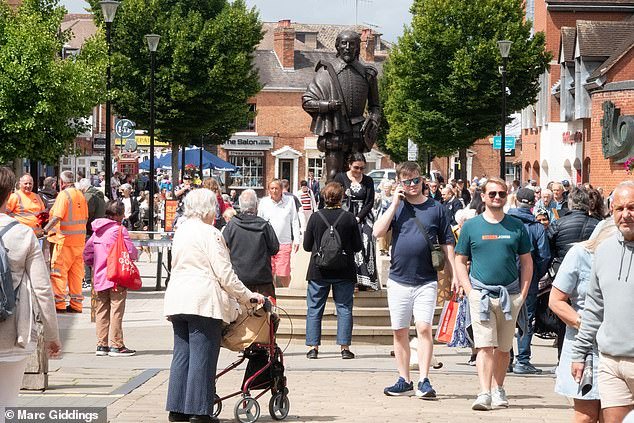

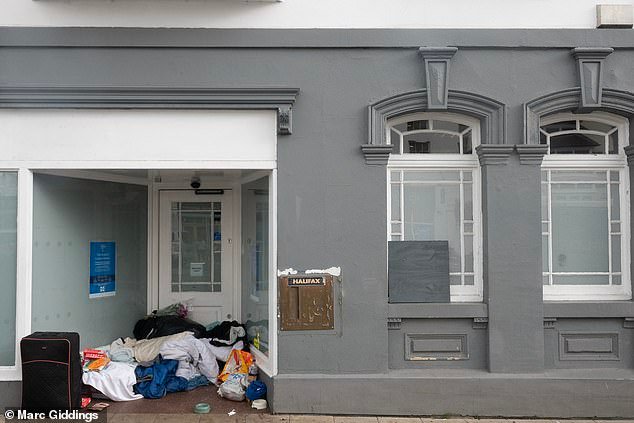
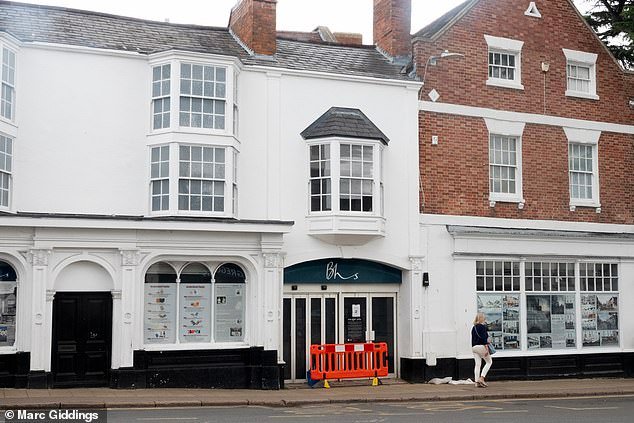
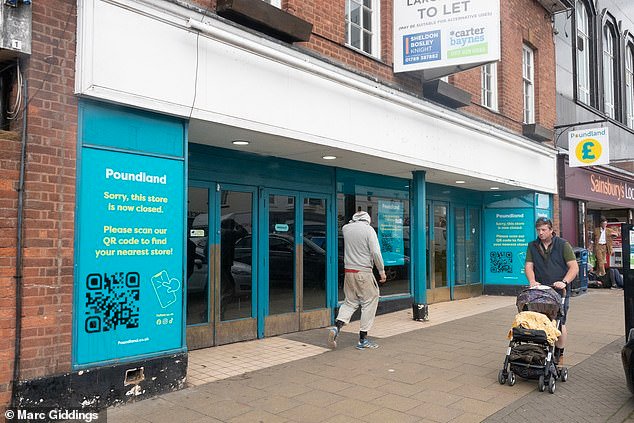

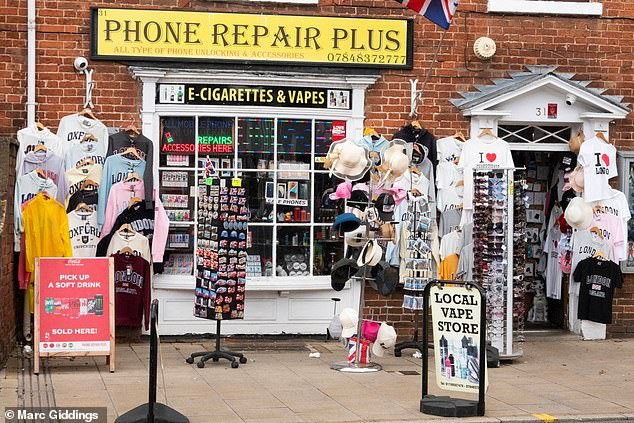
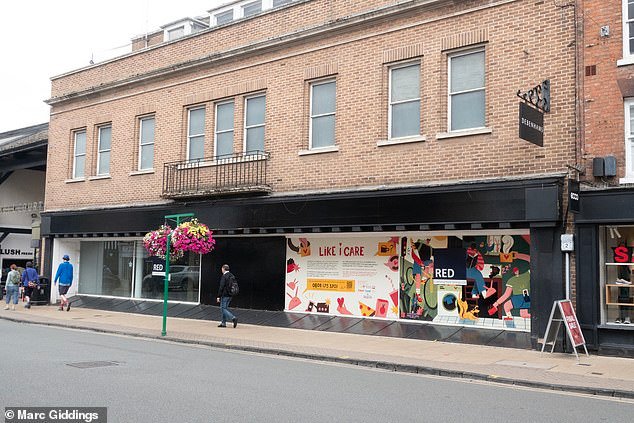
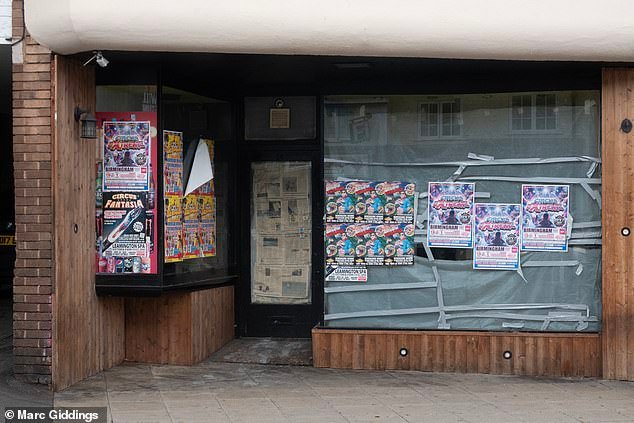
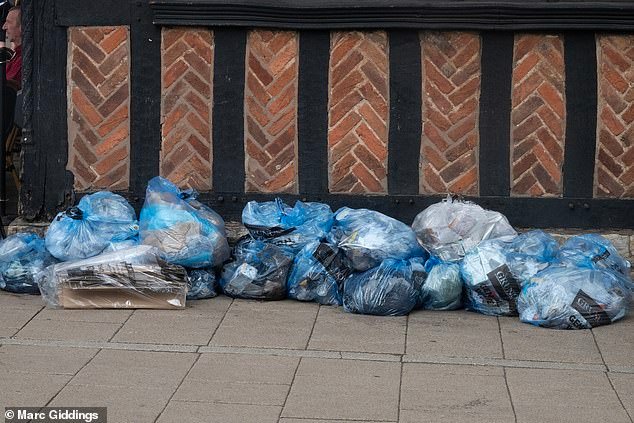
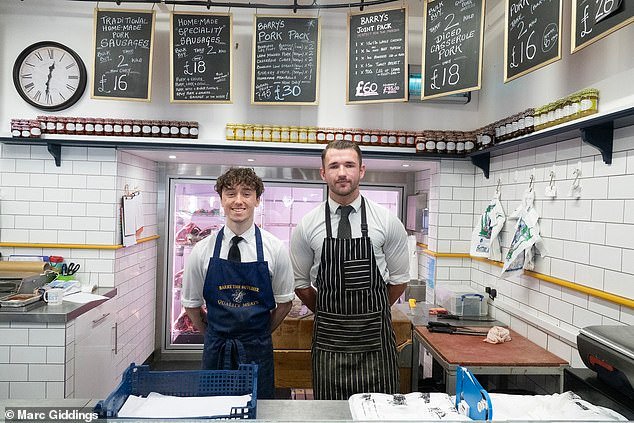

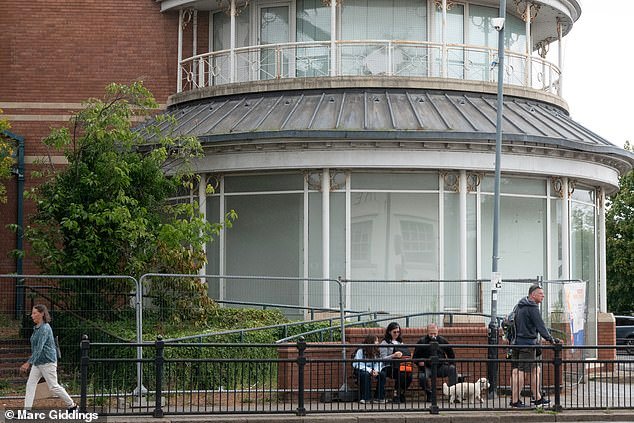
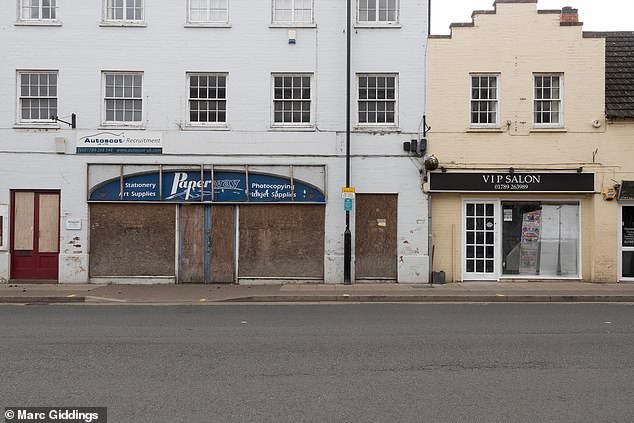
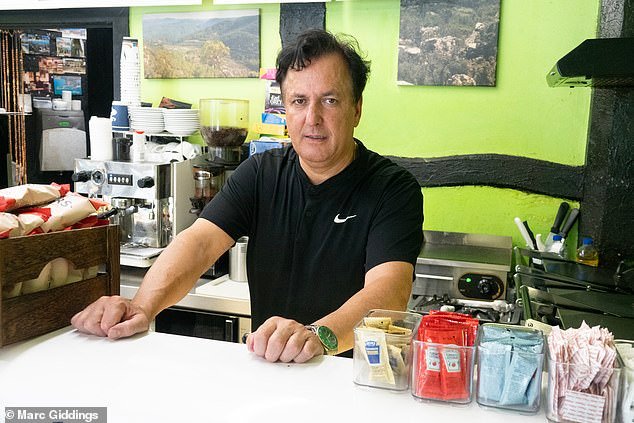
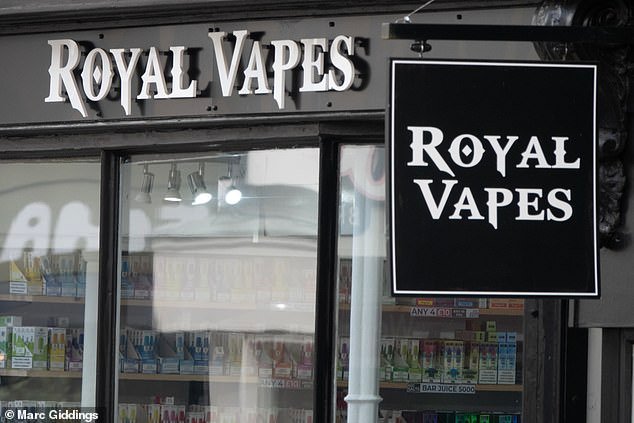

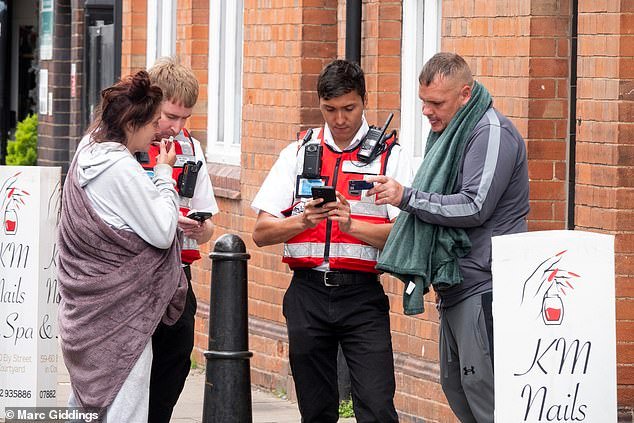

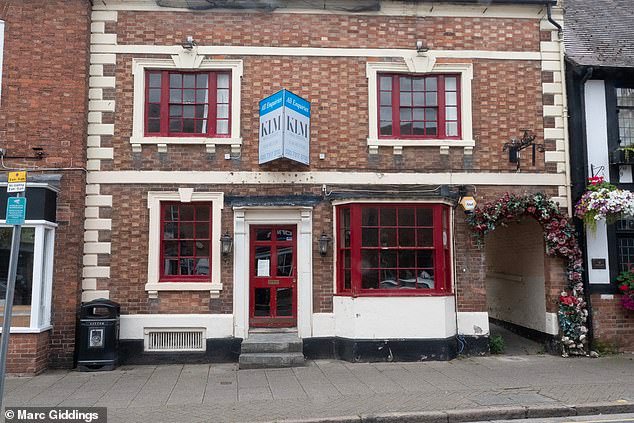
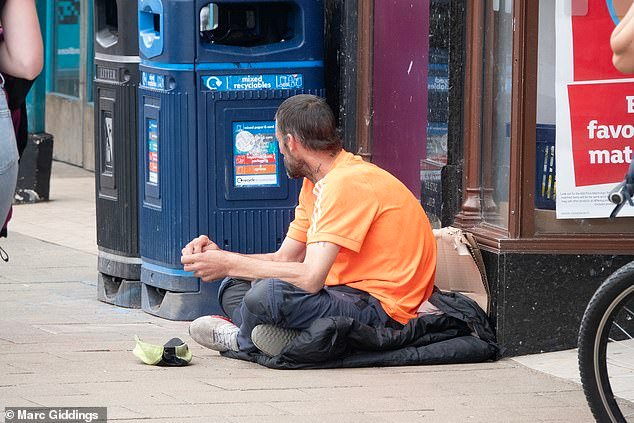
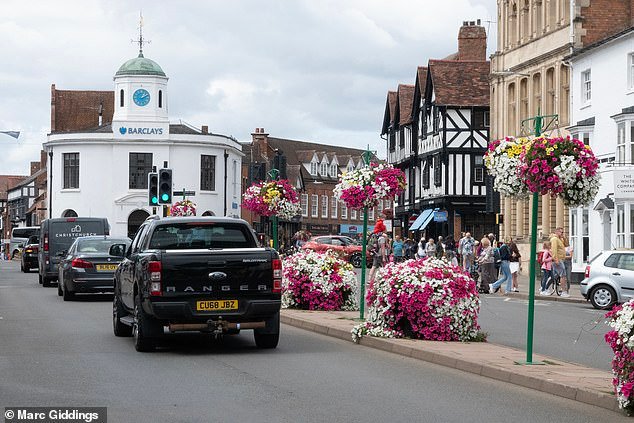
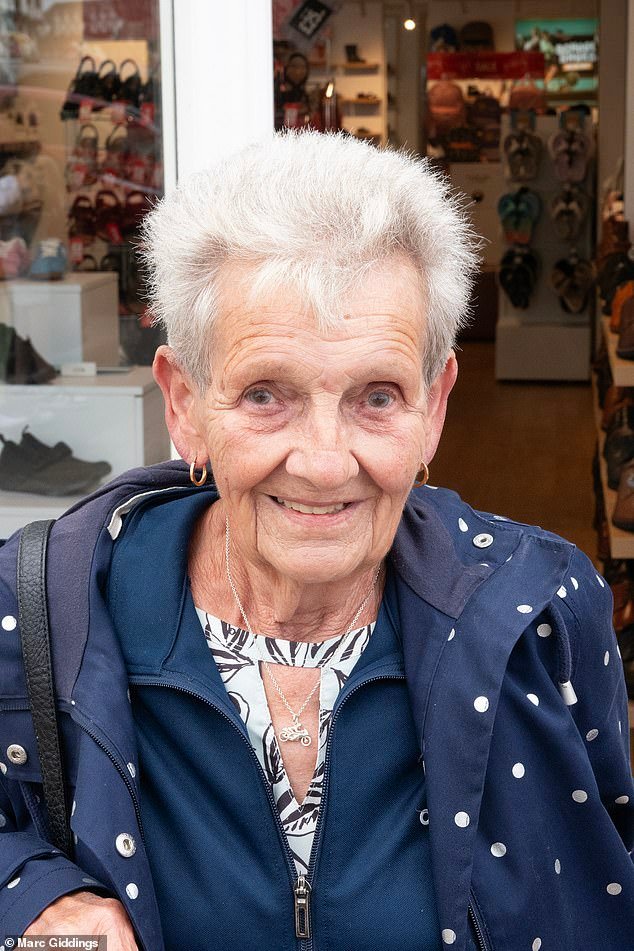
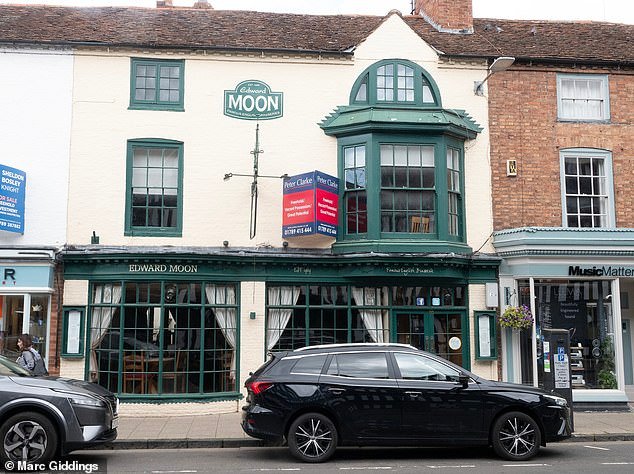
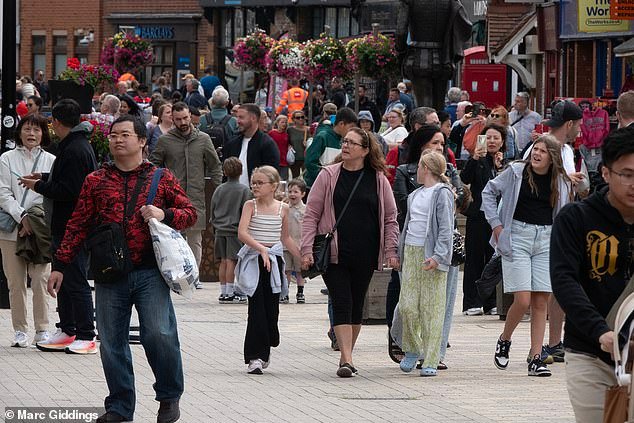
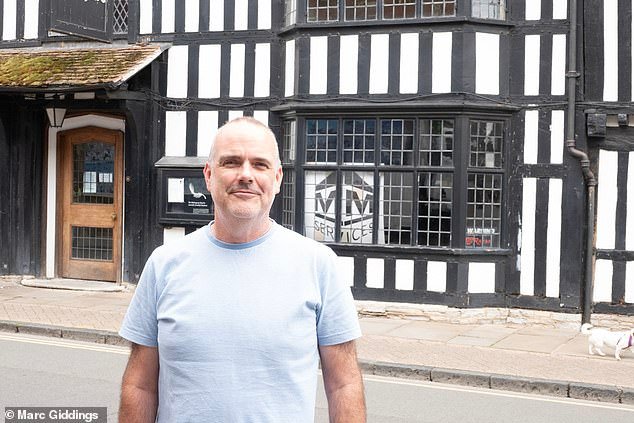
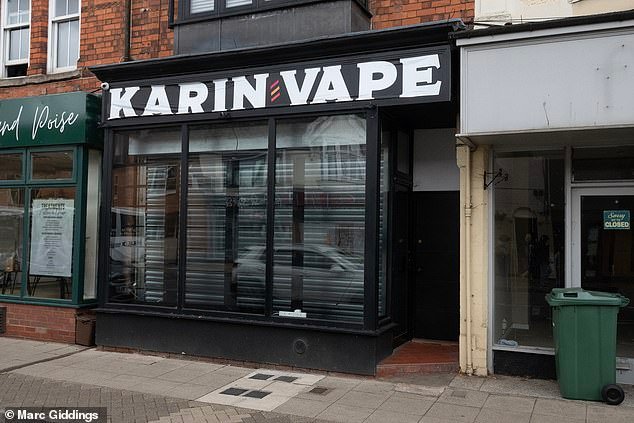
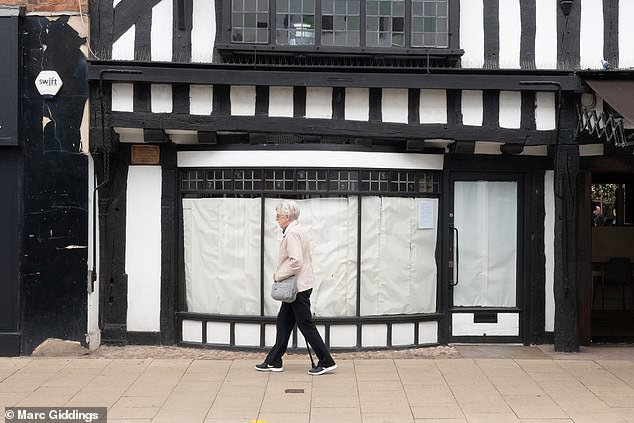
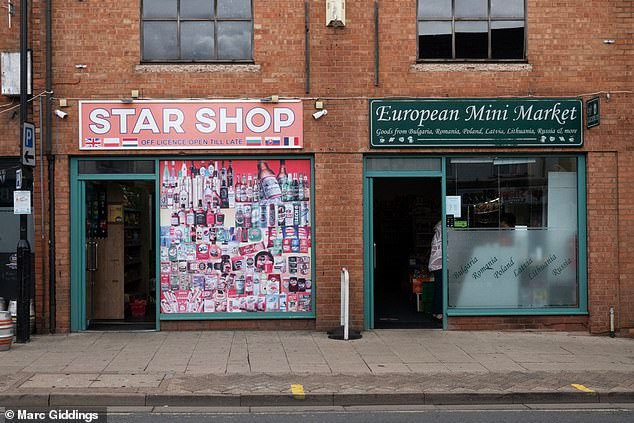
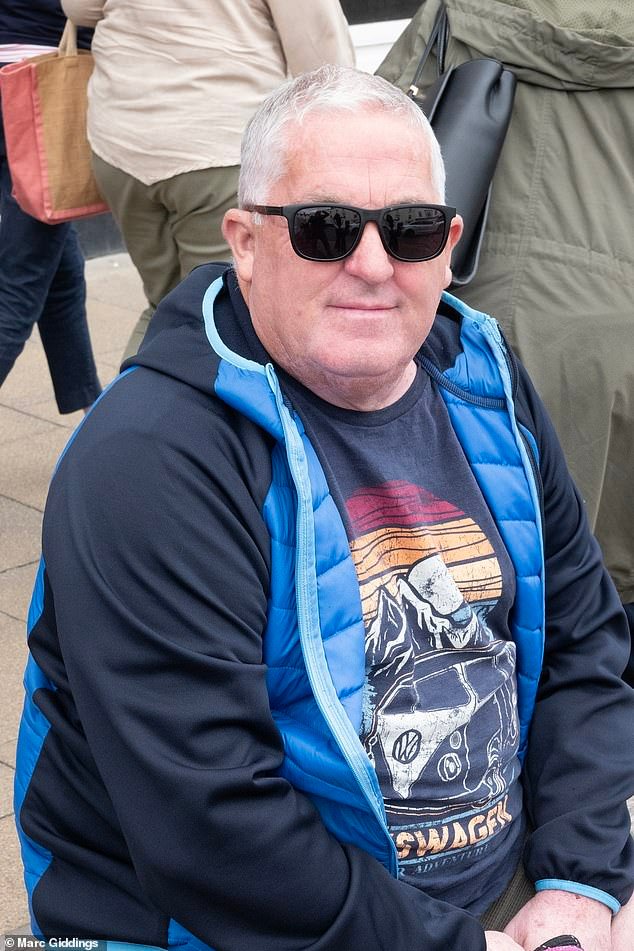
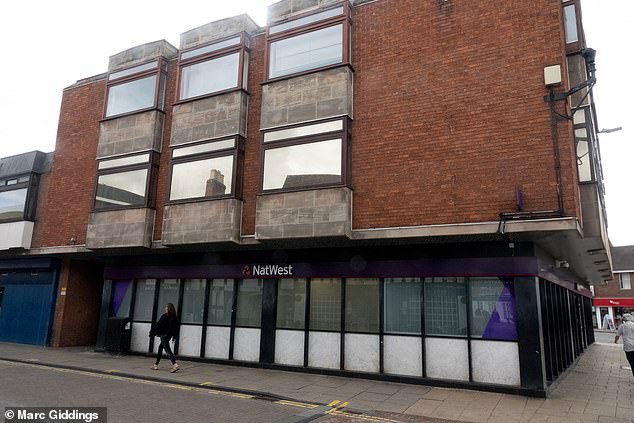
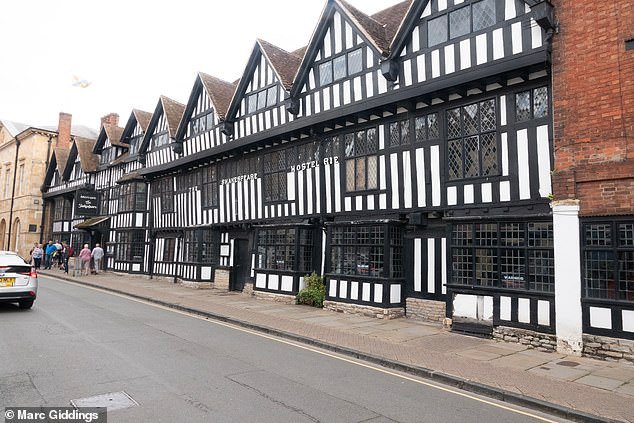
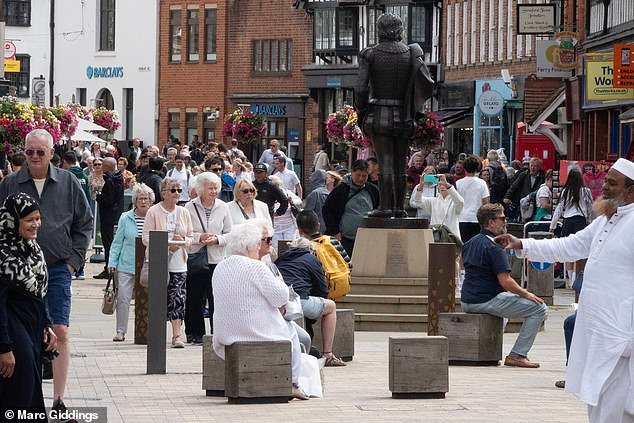
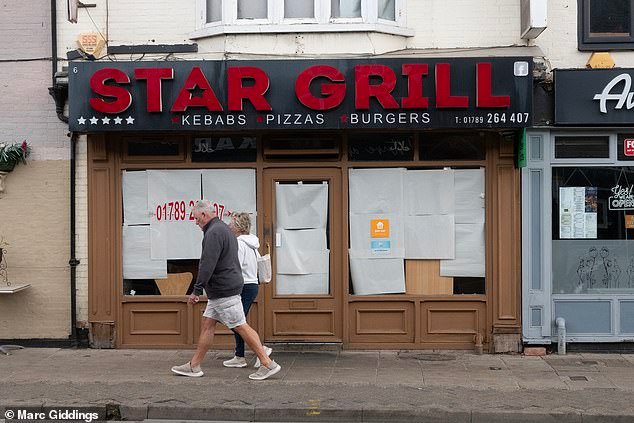

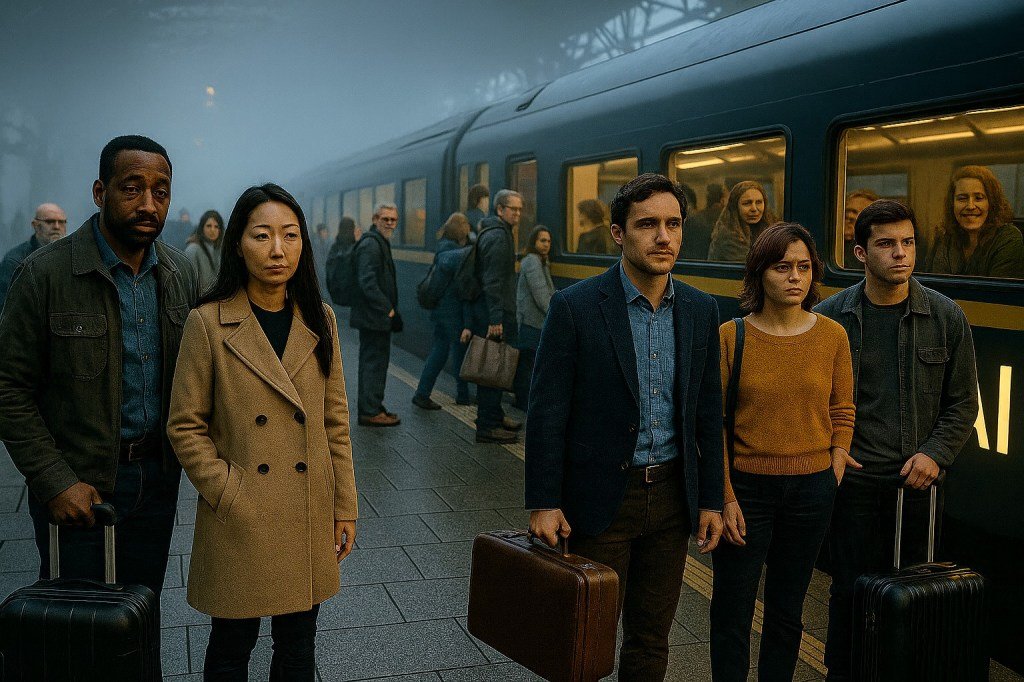

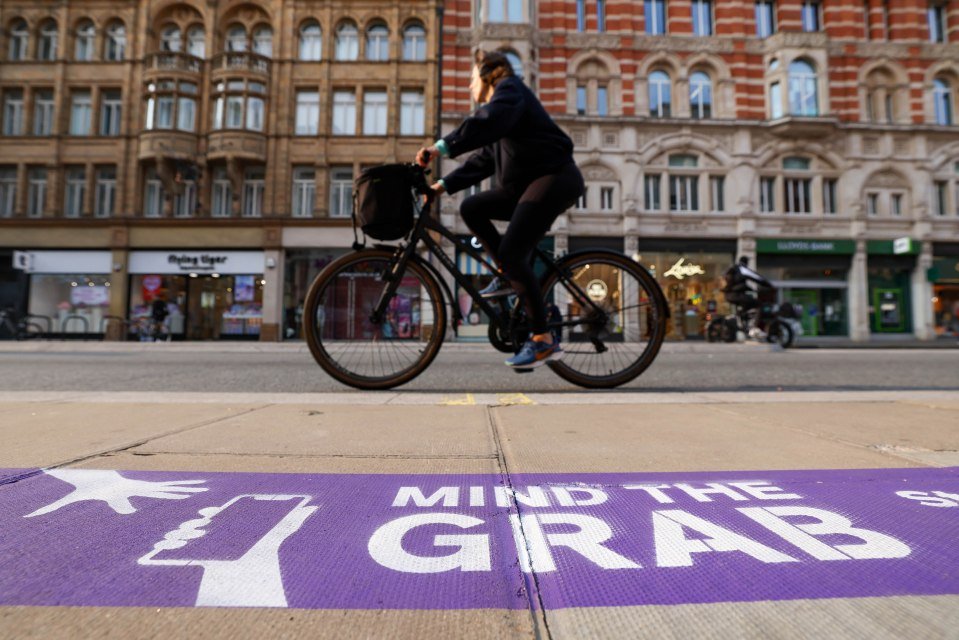
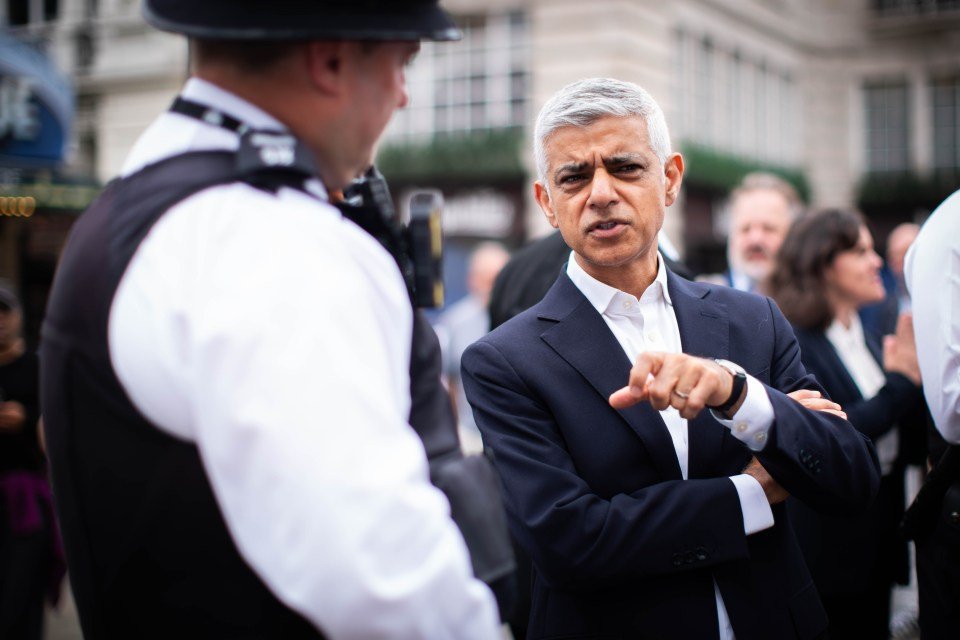
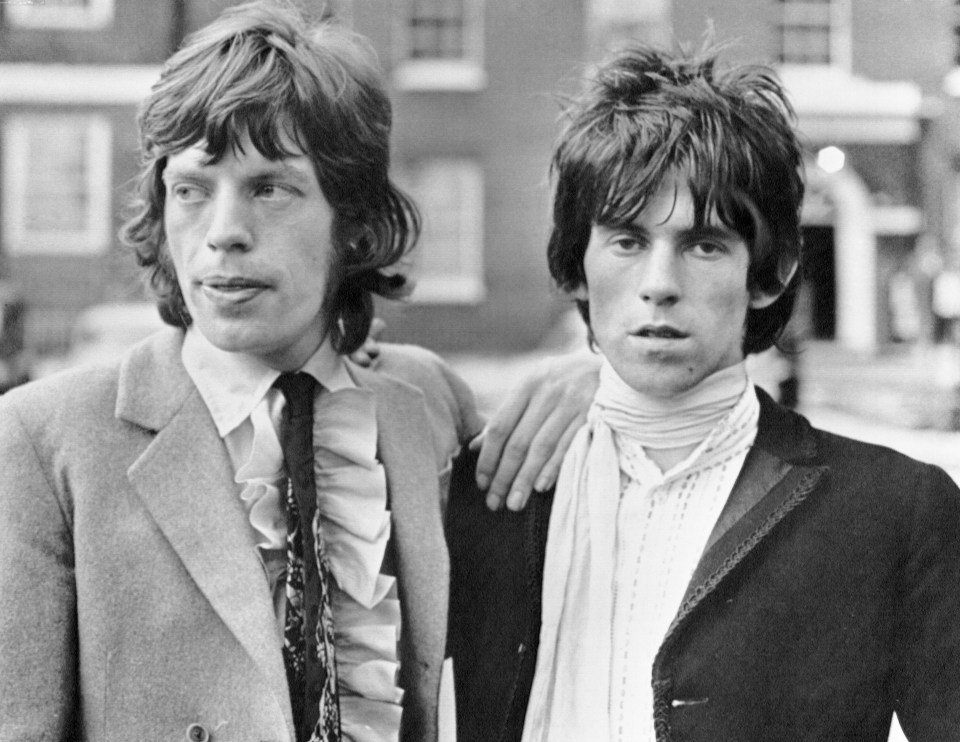
























You must be logged in to post a comment Login